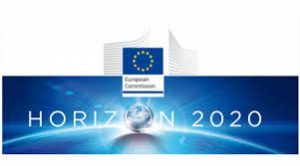Horizon 2020 | Apply microorganisms and/or enzymes to resolve end-of-life issues of plastic | 4 April – 4 September 2019

4 April – 4 September 2019
The call opened the 4th of April 2019 and it is classified as a Bio-based Industries Research & innovation actions (BBI-RIA).
RIA: are actions primarily consisting of activities aiming to establish new knowledge and/or to explore the feasibility of a new or improved technology, product, process, service or solution. For this purpose they may include basic and applied research, technology development.
BLUE ECONOMY TOPIC: Marine Litter
Microorganisms and/or enzymes can be applied to biodegrade/decompose plastic waste, one of the major threats to our ecosystem. This is a key focus area to apply the concept of the circular economy, besides changing human behaviour and production systems.
Scope: Select and apply the appropriate microorganisms and/or enzymes to address one or both of the following issues:
▪ convert waste streams containing non-biodegradable polymers;
▪ remove non-biodegradable polymers from the environment.
Proposals may include tailored microorganisms and/or enzymes for co-digestion or co-fermentation of different feedstock, provided that the developed solutions result in sufficient yields in terms of: (i) breaking down the feedstock; and/or (ii) conversion into valuable products.
Proposals should address all requirements for RIA as shown in Table 3, pp.24-25, in the Introduction of the Annual Work plan 20199. The technology readiness level (TRL) at the end of the project should be 4-5 for the bio-based value chain in question. Proposals should clearly state the starting and end TRLs of the key technology or technologies targeted in the project. Industry participation in the project would be considered as an added value
